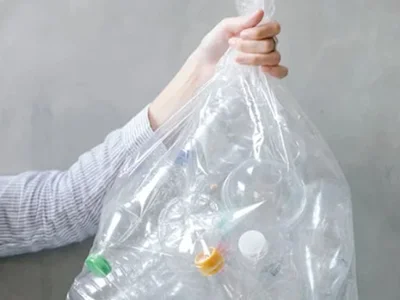Reclaim Waste - Questions
Reclaim Waste - Questions
Blog Article
The Best Strategy To Use For Reclaim Waste
Table of ContentsThings about Reclaim WasteThe Facts About Reclaim Waste RevealedThe Basic Principles Of Reclaim Waste Some Known Incorrect Statements About Reclaim Waste 7 Easy Facts About Reclaim Waste Shown
Explore the types, events, and kinds of liquid waste. Domestic sewer waste refers to the waste and products from a residential sewage-disposal tank. This sort of waste is produced by human beings in houses, schools, and various other buildings. This only consists of septic containers that have a drain field. The correct administration and disposal of domestic sewer waste need liquid waste to be transferred to a sewage treatment plant where the appropriate techniques and equipment are put on detoxify and get rid of waste.
Commercial waste usually includes possible hazards, such as combustible products or a mix of fluid and strong waste products, and needs an advanced and in-depth disposal procedure. The disposal of commercial waste normally involves the filtration of waste prior to transport to guarantee risk-free and correct disposal. Industrial waste is produced from by-products and drainage of industrial processes and production.
This type of waste can not make use of the very same sewage administration transport or procedures as septic or business fluids. The industrial waste administration procedure requires the examination and testing of fluid waste before it undergoes the disposal process (industrial wastewater treatment). Drainage waste is the fluid waste that originates from drainage and excess stormwater in very booming areas or cities
Overflow waste can trigger contamination and flooding if not handled appropriately. Find out more about sewer cleaning and waste management. Making sure appropriate waste administration can stop calamities and lower ecological damage. Both individuals in domestic settings and experts in industrial or production industries can take advantage of comprehending the procedures and laws of liquid waste management.
What Does Reclaim Waste Do?
Contact PROS Solutions today to find out about our waste administration and disposal solutions and the appropriate means to care for the fluid waste you produce.
(https://triberr.com/reclaimwaste1)This so-called 'wastewater' is not just an important source however, after therapy, will be launched to our land, waterways or the sea. Used water from bathrooms, showers, bathrooms, kitchen area sinks, washings and industrial procedures is known as wastewater.

water used to cool machinery or tidy plant and tools). Stormwater, a form of wastewater, is runoff that moves from farming and urban locations such as roofing systems, parks, yards, roads, courses and seamless gutters into stormwater drains pipes, after rainfall. Stormwater streams untreated directly to neighborhood creeks or rivers, eventually reaching the sea.
The 3-Minute Rule for Reclaim Waste
In Queensland, many wastewater is dealt with at sewer therapy plants. Wastewater is transferred from domestic or industrial sites with a system of drains and pump terminals, called sewage reticulation, to a sewer treatment plant. Regional governments develop, preserve and operate most sewage therapy plants. Operators are accredited under the Environmental Management Act 1994 to release cured wastewater at an acceptable ecological standard into waterways.
The Department of Natural Resources encourages local governments regarding handling, operating and maintaining sewerage systems and therapy plants. In unsewered locations, city governments may require householders to mount specific or household sewage therapy systems to deal with domestic wastewater from toilets, kitchens, bathrooms and washings. The Department of Natural Resources authorises using family systems when they are verified to be efficient.
In some brand-new subdivisions, treatment of some stormwater to get rid of trash, sand and crushed rock has started utilizing gross toxin traps. Wastewater therapy happens in 4 stages: Gets rid of solid issue.
Uses small living microorganisms knows as micro-organisms to break down and get rid of remaining dissolved wastes and fine bits. Micro-organisms and wastes are included in the sludge.
Some Known Factual Statements About Reclaim Waste
Nutrient removal is not available at all sewer therapy plants since it calls for costly specialised devices. Clear fluid effluent produced after treatment may still have disease-causing micro-organisms - liquid waste removal.

Most wastewater moves into the sewage system. Under the Act, regional governments carry out approvals and permits for ecologically relevant tasks (Ages) involving wastewater launches that may have a regional effect.
All About Reclaim Waste
Otherwise, samples are considered laboratory analysis. Often numerous examinations are required to establish the degrees of each of the various toxins such as oils, heavy metals and chemicals in water. Monitoring gives factual info regarding water high quality and can verify that permit problems are being fulfilled. The information gotten through surveillance supplies the basis for making water quality decisions.
Report this page